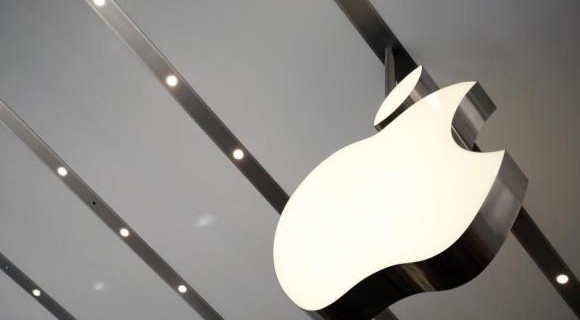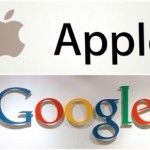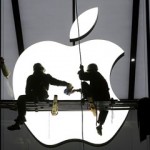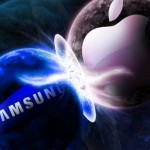Apple in the Dock: $1 Billion Antitrust Claim Casts Steve Jobs as Conspirator

In 2005, Mariah Carey had the number one single, “Grey’s Anatomy” was among the hottest shows on television, and Steve Jobs, and Apple Inc.’s iPod, were king.
Customers of rival music players marred this shiny prospect for Apple and Jobs that same year by filing a class-action lawsuit, claiming the company tried to maintain a monopoly over online music by forcing iPod buyers to purchase content only from its iTunes store.
After an almost decade-long fight in federal court, consumer lawyers will ask a jury in Oakland, California, today to find Apple violated antitrust laws by locking customers into iTunes and owes more than $1 billion in damages. Jobs’s role in the company’s strategy will be probed as they show his e-mails and testimony videotaped six months before his death in 2011.
The trial promises a trip back in time, when the iPod was still new and dominated in digital music. Gwen Stefani’s “Hollaback Girl” and Green Day’s “Boulevard of Broken Dreams” were hits and Apple sold more 22 million iPods in 2005.
A year earlier, Apple had accused RealNetworks Inc. of using “the tactics and ethics of a hacker” with a program allowing consumers to buy music, circumvent Apple’s digital rights software and play it on iPods.
ITunes Software
Attorneys representing as many as 14 million consumers who purchased iPods from 2006 to 2009 claim Apple modified iTunes software so music downloaded with RealNetworks software couldn’t be played. Locking iPod owners into iTunes stifled competition for downloading services and enabled Apple to charge more for iPods, they claim.
The result was overcharges of 7.5 percent on iPods sold to retail customers and 2.3 percent on iPods sold to resellers for total damages of almost $352 million, plaintiff attorney Bonny Sweeney said in court filings. Under federal antitrust law, the damages can be tripled if Apple loses.
Apple called this theory “implausible,” saying in a court filing that RealNetworks, which isn’t a party in the case, was a minor player and there’s no evidence consumers were locked into buying an iPod.
The software modifications provided security and anti-hacking fixes, and while they may have disabled programs like Harmony software made by RealNetworks, they were justified and lawful because they enhanced and improved iPods, Apple said in court filings.
Sales Fall
The music player, introduced 13 years ago, has seen its sales fall dramatically after the 2007 debut of the iPhone and will no longer be broken out separately by Apple.
Among the witnesses that lawyers for Apple and for the consumers may call to testify at trial are Eddy Cue, the company’s head of Internet services who oversees the iTunes store; Jeff Robbin, who helped create the iPod; and Philip Schiller, Apple’s senior vice president of worldwide marketing, according to a court filing.
E-mails between those executives and Jobs may be presented during the trial, according to a list of evidence exhibits.
Rachel Wolf, a spokeswoman for Cupertino, California-based Apple, declined to comment on the trial.
Jobs’s conduct has been repeatedly challenged in antitrust cases against the company since his death, with opponents trying to show he had an above-the-law attitude while engaging in anticompetitive activity.
In the case the U.S. government won last year over allegations that Apple rigged the price of electronic books, a Manhattan judge concluded that the conspiracy to target e-book leader Amazon.com Inc. came from Jobs himself.
‘Compelling Evidence’
“Compelling evidence of Apple’s participation in the conspiracy came from the words uttered by Steve Jobs, Apple’s founder, CEO, and visionary,” U.S. District Judge Denise Cote said in her July 2013 ruling.
A judge in San Jose, California, was likewise unsparing of Jobs when she refused in August to approve a $324.5 million settlement proposed by Apple, Google Inc. and two other companies to settle claims that the Silicon Valley giants conspired to not recruit each other’s workers.
U.S. District Judge Lucy Koh cited Jobs e-mails revealed during years of litigation that depict him pulling the strings of technology executives including Google Chairman Eric Schmidt to keep employees from jumping ship and making more money.
“There is substantial and compelling evidence that Steve Jobs was a, if not the, central figure in the alleged conspiracy,” Koh wrote. That case is scheduled for trial in April.
Consumer Lawyers
In the iPod case, Apple sought a ruling barring evidence at trial concerning Jobs’s character, saying the plaintiffs’ goal was to “inflame and confuse the jury.” Consumer lawyers wanted jurors to know about the damning Jobs evidence that came out in the New York and San Jose cases, and said Apple was trying to interfere with the presentation of their case.
U.S. District Judge Yvonne Gonzalez Rogers came up with a compromise.
She blocked the consumers from bringing in outside evidence — unless Apple tries to depict Jobs as a “visionary.” She warned Apple’s lawyers the truce is theirs to break.
“If you put his character into issue, then the door is opened,” Rogers said at a hearing in October. “Visionaries can be good guys and bad guys. Visionaries take all types.”
Rogers also had to referee a spat over whether to tell the jury Jobs had pancreatic cancer.
Apple said jurors should be told he was on medical leave when he gave video-recorded testimony to consumer lawyers because they will use his statements about not remembering certain events to “cast a negative light” on him.
Jobs’s Cancer
Attorneys on the other side argued that Apple was trying to play jurors’ heartstrings by bringing up the cancer.
The judge ruled that jurors will be told of the medical leave and Jobs’s death, although she said the cancer shouldn’t be mentioned because it’s not relevant and could be used “to get sympathy” from the panel.
There’s a risk for plaintiffs if they try to attack Jobs, said Mark Lemley, a professor at Stanford Law School.
“If the plaintiffs can paint Steve Jobs and Apple as thinking they are above the law, they may turn a complex technical case into a story a jury can easily come to grips with,” he said in an e-mail. “But while that tactic is common in cases like this, Steve Jobs is a tough target. He is widely admired, and trying to tarnish his reputation could backfire on the plaintiffs.”
Prospective jurors in the iPod trial were vetted over how they feel about Jobs when they were selected for the panel last month.
Strong Views
One man acknowledged having strong views on both sides. In his responses on a written questionnaire, he used a profanity to characterize Jobs as a jerk while also calling him a “job creator and an innovator.”
The judge asked the man whether, in light of his opinions, he could “come in with an fair, open mind” and “decide this case solely based upon the evidence,” according to a court transcript.
“Yes, I can,” the man said. He didn’t make it onto the jury after Apple exercised its right to exclude him without saying why.
The case is The Apple iPod iTunes Antitrust Litigation, 05-37, U.S. District Court, Northern District of California (Oakland).
Source: Bloomberg – Apple in the Dock: $1 Billion Antitrust Claim Casts Steve Jobs as Conspirator





























